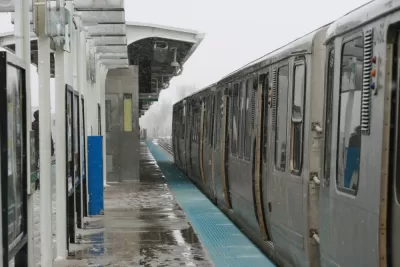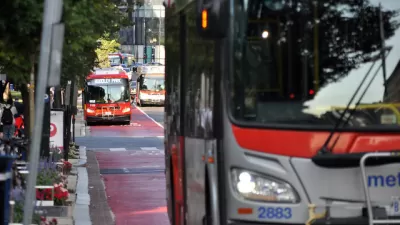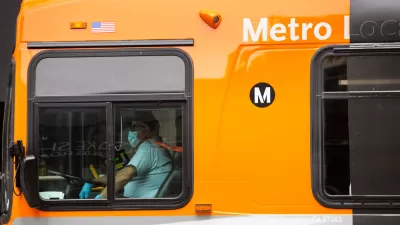New data technology has made it possible to measure transit equity in ways that were impossible before. TransitCenter is making good use of the new capabilities.

Questions about transit equity have, historically, been hard to answer. Recent data advances have made it more feasible to quantify information about gaps in transit service, and the communities affected by those gaps.
Now TransitCenter has built a new transit equity dashboard, as a template and a "newly-possible best practice." The Transit Center Equity Dashboard "[demonstrates] the nuance that access-to-opportunity analysis brings to equity evaluations, and to shed light on large gaps in access facing U.S. transit riders," according to the website for the new dashboard.
"This dashboard measures how well transit networks in seven U.S. cities connect people who’ve been marginalized within those metro areas to the jobs, services, and amenities they need to thrive," according to the website. "Using February 2020 as a baseline, the dashboard looks at metrics like the number of jobs people can reach within a limited timeframe or budget, travel times to hospitals and grocery stores, and service frequency, and tracks how these measures have changed in each region."
Of the seven cities, six are live on the site with stories, maps, and data: Chicago, Los Angeles, New York, Philadelphia, San Francisco-Oakland, and Washington, D.C. The dashboard for Boston is coming soon.
As an example of the "story" included with the dashboard for each of the cities, Chicago is revealed to provide less transit service to Black and Lantinx residents compared to other groups. Trips for healthcare and grocery shopping are also likely to take longer, due to transportation and development patterns.
Laura Bliss shares news and insight into the findings of the new dashboard in an article for Bloomberg CityLab. The headlining takeaway from that article: transit service cuts during the pandemic have yet to be restored in many places, and many riders continue to suffer the consequences.
There is a mountain of data to explore for each city on the dashboard. Start exploring at the link below.
FULL STORY: Tracking Transit Equity in US Cities

Alabama: Trump Terminates Settlements for Black Communities Harmed By Raw Sewage
Trump deemed the landmark civil rights agreement “illegal DEI and environmental justice policy.”

Planetizen Federal Action Tracker
A weekly monitor of how Trump’s orders and actions are impacting planners and planning in America.

The 120 Year Old Tiny Home Villages That Sheltered San Francisco’s Earthquake Refugees
More than a century ago, San Francisco mobilized to house thousands of residents displaced by the 1906 earthquake. Could their strategy offer a model for the present?

Ken Jennings Launches Transit Web Series
The Jeopardy champ wants you to ride public transit.

BLM To Rescind Public Lands Rule
The change will downgrade conservation, once again putting federal land at risk for mining and other extractive uses.

Indy Neighborhood Group Builds Temporary Multi-Use Path
Community members, aided in part by funding from the city, repurposed a vehicle lane to create a protected bike and pedestrian path for the summer season.
Urban Design for Planners 1: Software Tools
This six-course series explores essential urban design concepts using open source software and equips planners with the tools they need to participate fully in the urban design process.
Planning for Universal Design
Learn the tools for implementing Universal Design in planning regulations.
Clanton & Associates, Inc.
Jessamine County Fiscal Court
Institute for Housing and Urban Development Studies (IHS)
City of Grandview
Harvard GSD Executive Education
Toledo-Lucas County Plan Commissions
Salt Lake City
NYU Wagner Graduate School of Public Service




























